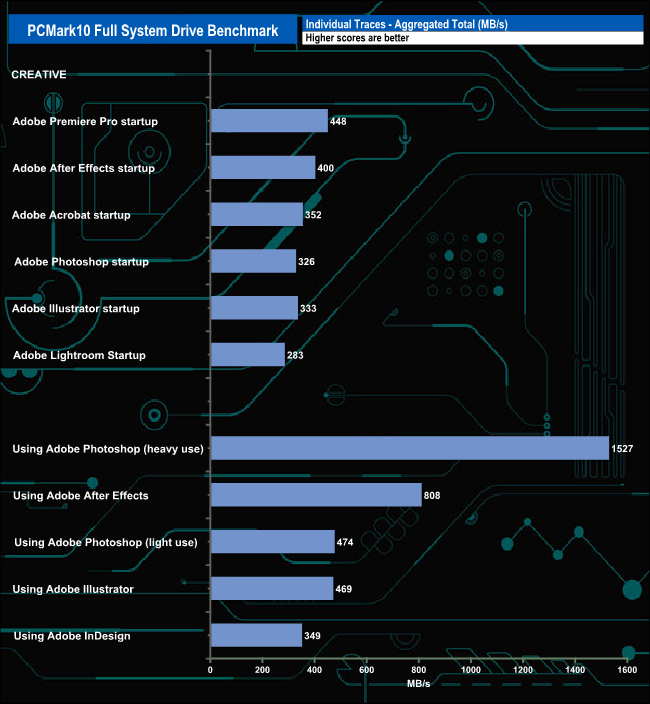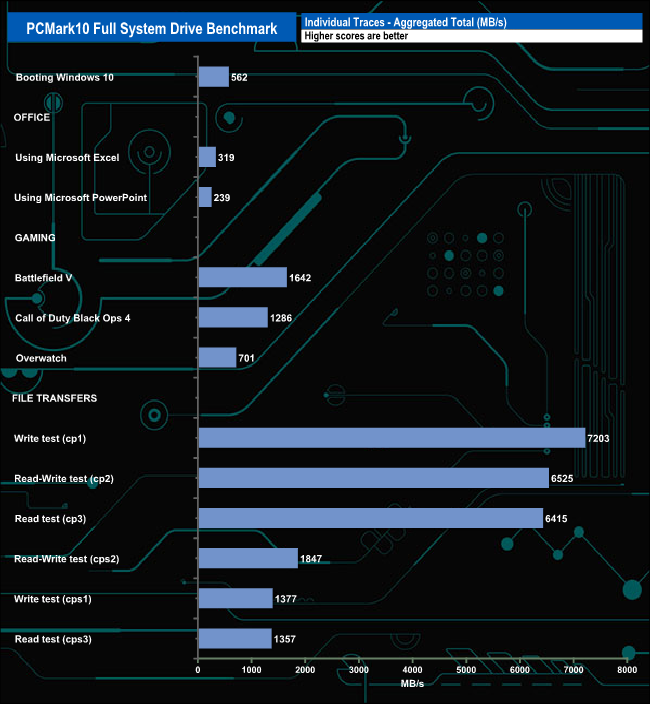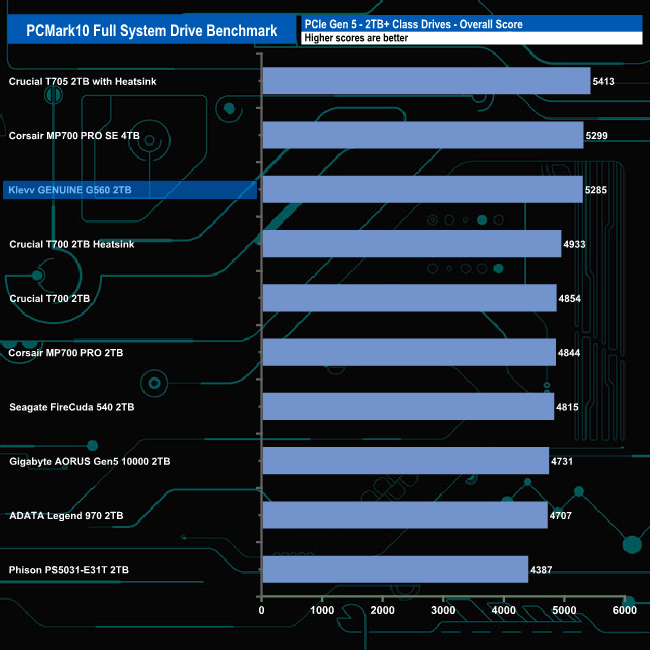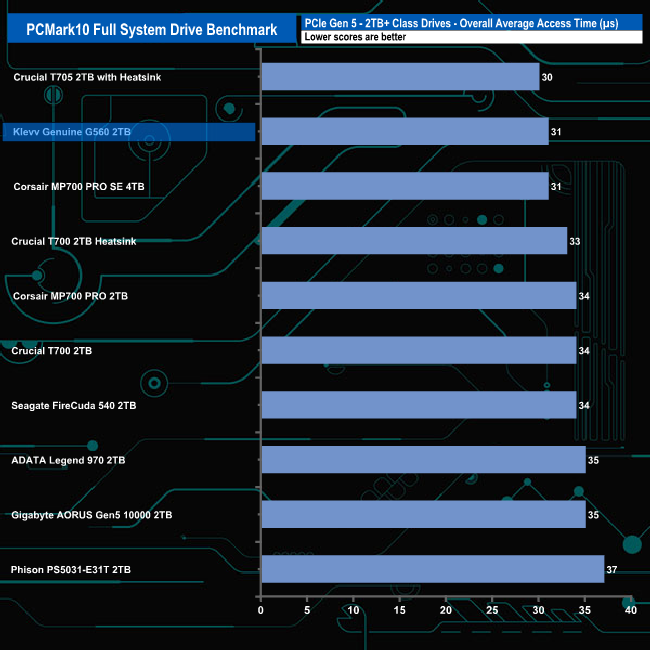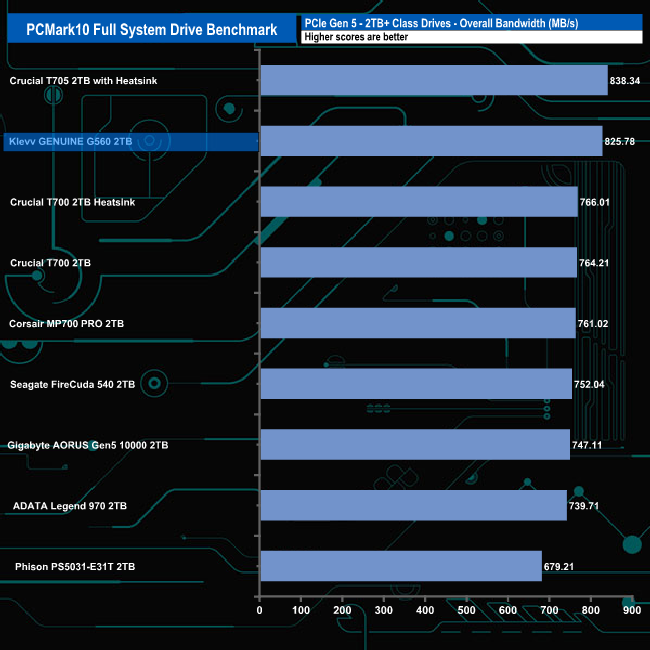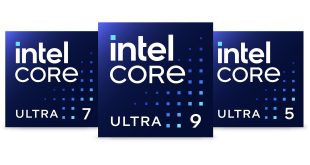The PCMark 10 Full System Drive Benchmark uses a wide-ranging set of real-world traces from popular applications and common tasks to fully test the performance of the fastest modern drives. The benchmark is designed to measure performance of fast system drives using the SATA bus at the low end and devices connected via PCI Express at the high end.
The goal of the benchmark is to show meaningful real-world performance differences between fast storage technologies such as SATA, NVMe, and Intel’s Optane. The Full System Drive Benchmark uses 23 traces, running 3 passes with each trace. It typically takes an hour to run.
Traces used:
Booting Windows 10.
Adobe Acrobat – starting the application until usable.
Adobe Illustrator – starting the application until usable Adobe Premiere Pro – starting the application until usable.
Adobe Photoshop – starting the application until usable.
Battlefield V – starting the game until the main menu.
Call of Duty Black Ops 4 – starting the game until the main menu.
Overwatch – starting the game until main menu.
Using Adobe After Effects.
Using Microsoft Excel.
Using Adobe Illustrator.
Using Adobe InDesign.
Using Microsoft PowerPoint.
Using Adobe Photoshop (heavy use).
Using Adobe Photoshop (light use).
cp1 Copying 4 ISO image files, 20 GB in total, from a secondary drive to the target drive (write test).
cp2 Making a copy of the ISO files (read-write test).
cp3 Copying the ISO to a secondary drive (read test).
cps1Copying 339 JPEG files, 2.37 GB in total, to the target drive (write test).
cps2 Making a copy of the JPEG files (read-write test).
cps3 Copying the JPEG files to another drive (read test).
Klevv's 2TB GENUINE G560 dealt with the rigours of the PCMark10 Full System Drive Benchmark pretty well. For the six Adobe startup traces it averaged 357MB/s with the fastest performance coming from the Premiere Pro test trace at 448MB/s while the slowest figure came from the Lightroom startup trace at 283MB/s.
In the Adobe usage traces the Photoshop (Heavy) trace was the fastest at 1,527MB/s and including this one, the drive averaged 725.40MB/s for the five tests
The three gaming traces produced an average result of 1,209MB/s, the fastest being Battlefield V at 1,642MB/s, next came Call Of Duty Black Ops 4 at 1.286MB/s and last and quite some way back, Overwatch at 701MB/s.
When it came to the file transfers, the fastest was the cp1 Write test at 7,203MB/s with the drive averaging 4,120MB/s for the six file transfer tests.
With an overall bandwidth figure of 825.75MB/s, the drive sits in a second spot in the results table just behind Crucial's heatsinked equipped version of the T705.
 KitGuru KitGuru.net – Tech News | Hardware News | Hardware Reviews | IOS | Mobile | Gaming | Graphics Cards
KitGuru KitGuru.net – Tech News | Hardware News | Hardware Reviews | IOS | Mobile | Gaming | Graphics Cards


